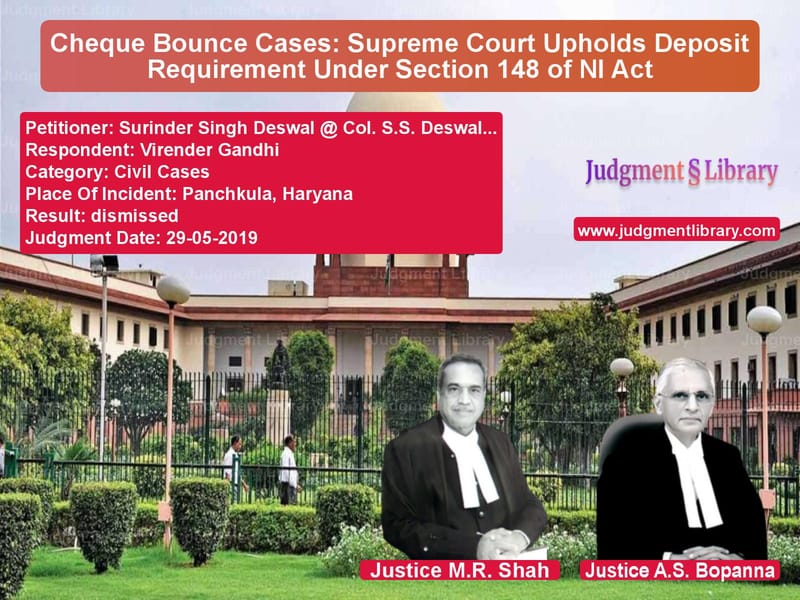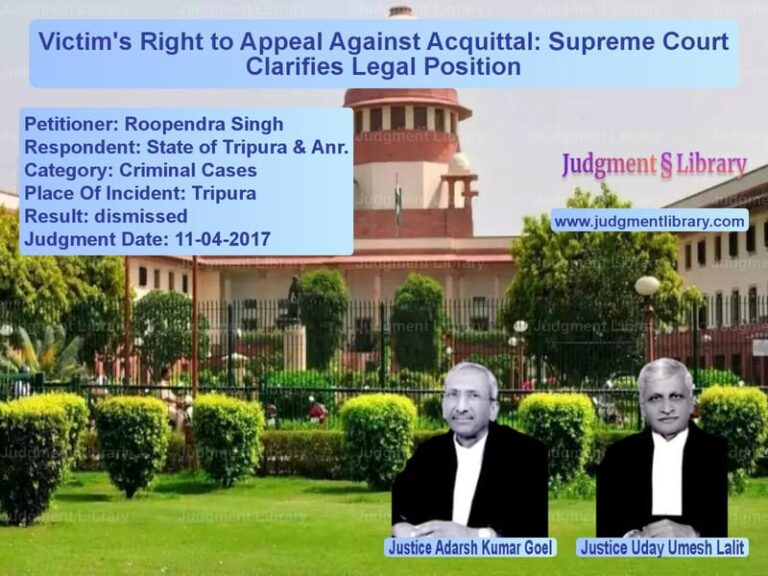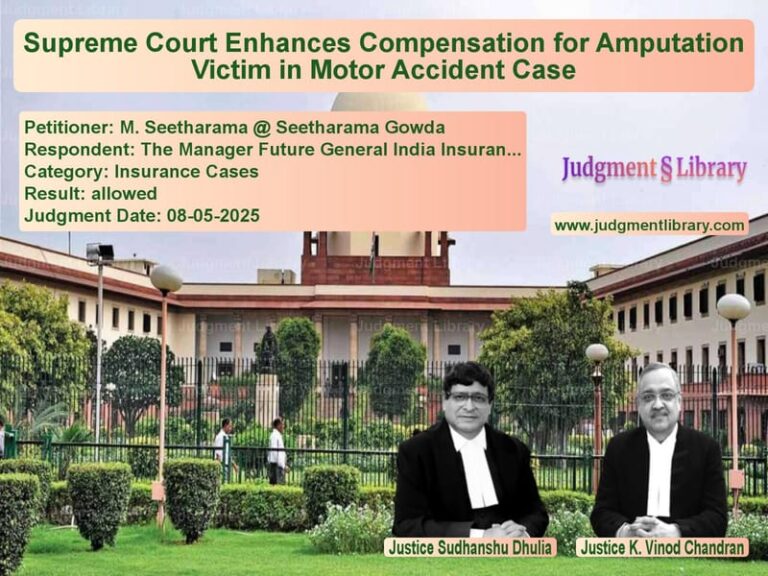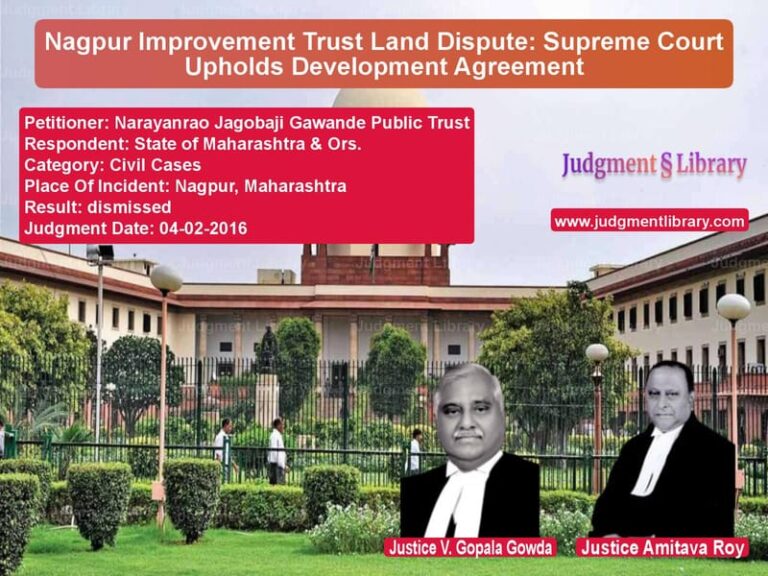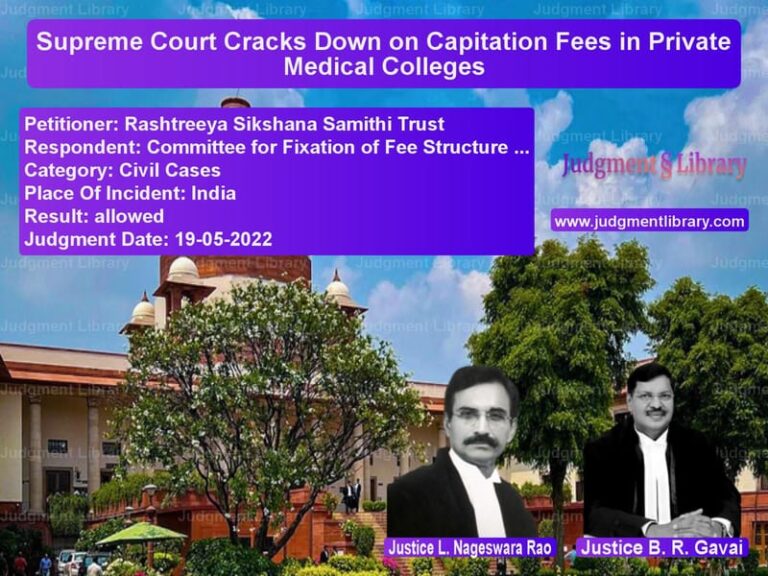Cheque Bounce Cases: Supreme Court Upholds Deposit Requirement Under Section 148 of NI Act
The case of Surinder Singh Deswal @ Col. S.S. Deswal & Others vs. Virender Gandhi dealt with a critical legal issue regarding the applicability of the amended Section 148 of the Negotiable Instruments Act, 1881 (NI Act). The Supreme Court was called upon to decide whether the requirement to deposit 25% of the compensation amount applies to appeals in cheque bounce cases, even if the case was initiated before the amendment came into force.
Background of the Case
The appellants were convicted for dishonoring cheques under Section 138 of the NI Act. The trial court sentenced them to two years of imprisonment and imposed a fine equivalent to the cheque amount with an additional 1% interest. The appellants challenged this decision before the Additional Sessions Judge, Panchkula, and sought suspension of their sentence under Section 389 of the Criminal Procedure Code (CrPC). The appellate court granted bail but directed the appellants to deposit 25% of the compensation amount under the newly amended Section 148 of the NI Act.
Contesting this requirement, the appellants filed revision petitions before the Punjab and Haryana High Court, arguing that Section 148 should not apply retrospectively to cases filed before the amendment came into force. The High Court dismissed their plea, prompting them to approach the Supreme Court.
Key Legal Issues
- Does the amended Section 148 of the NI Act apply to appeals in cases initiated before the amendment came into effect?
- Is the requirement to deposit 25% of the compensation amount mandatory or discretionary?
- Does this requirement violate the fundamental rights of an accused under Article 21 of the Constitution?
Arguments Presented
Petitioners (Surinder Singh Deswal & Others)
- Section 148 of the NI Act was amended through Act No. 20 of 2018, which came into force on September 1, 2018. Since the criminal complaints against them were filed before this date, the amended provision should not apply.
- Legal proceedings should be governed by the law applicable at the time of filing, unless a new law is expressly given retrospective effect.
- The first appellate court erroneously treated the 25% deposit requirement as mandatory instead of discretionary.
- They relied on the Supreme Court judgments in Garikapatti Veeraya vs. N. Subbiah Choudhury and Videocon International Ltd. vs. SEBI to argue that substantive rights cannot be taken away by an amendment unless explicitly stated.
Respondent (Virender Gandhi)
- The amendment aimed to curb the misuse of appeals by convicted persons who use legal proceedings to delay payment to cheque holders.
- Section 148 was procedural, not substantive, and could apply to pending cases.
- The provision gives discretion to the appellate court to impose a minimum deposit of 20% of the compensation amount to prevent abuse of the legal system.
- The statement of objects and reasons for the amendment clearly established that it was meant to ensure expeditious disposal of cheque dishonor cases.
Supreme Court’s Observations and Judgment
The Supreme Court upheld the High Court’s decision, ruling that:
- The amendment to Section 148 was procedural in nature and did not affect substantive rights.
- Even in cases filed before the amendment, the appellate court could impose a deposit requirement while granting bail.
- The word “may” in Section 148 should be read as “shall” in most cases, meaning the deposit requirement is generally mandatory.
- The purpose of the amendment was to curb undue delays caused by frivolous appeals in cheque bounce cases.
The Court emphasized:
“Having observed that because of the delay tactics of unscrupulous drawers of dishonored cheques due to easy filing of appeals and obtaining stay on proceedings, the object and purpose of the enactment of Section 138 of the NI Act was being frustrated, the Parliament thought it fit to amend Section 148 of the NI Act.”
Accordingly, the Court dismissed the appeals and directed the appellants to deposit the amount within four weeks.
Impact of the Judgment
- This ruling reinforces that courts must interpret procedural amendments in a way that furthers legislative intent.
- It establishes that the appellate court has the discretion to impose a 25% deposit requirement but should ordinarily do so unless special circumstances exist.
- The decision aims to protect the interests of payees in cheque dishonor cases and prevent misuse of the appeals process.
- It discourages convicted persons from using appeals as a means to delay their obligations under the law.
Conclusion
The Supreme Court’s ruling clarifies that the amended Section 148 of the NI Act applies to all pending appeals, regardless of when the complaint was filed. This decision strengthens the enforcement of cheque bounce cases and prevents the misuse of appellate procedures to evade financial liabilities. It marks a significant step toward ensuring the speedy resolution of cases under the NI Act.
Petitioner Name: Surinder Singh Deswal @ Col. S.S. Deswal & Others.Respondent Name: Virender Gandhi.Judgment By: Justice M.R. Shah, Justice A.S. Bopanna.Place Of Incident: Panchkula, Haryana.Judgment Date: 29-05-2019.
Don’t miss out on the full details! Download the complete judgment in PDF format below and gain valuable insights instantly!
Download Judgment: Surinder Singh Deswa vs Virender Gandhi Supreme Court of India Judgment Dated 29-05-2019.pdf
Direct Downlaod Judgment: Direct downlaod this Judgment
See all petitions in Cheque Dishonour Cases
See all petitions in Contract Disputes
See all petitions in Debt Recovery
See all petitions in Judgment by Mukeshkumar Rasikbhai Shah
See all petitions in Judgment by A. S. Bopanna
See all petitions in dismissed
See all petitions in supreme court of India judgments May 2019
See all petitions in 2019 judgments
See all posts in Civil Cases Category
See all allowed petitions in Civil Cases Category
See all Dismissed petitions in Civil Cases Category
See all partially allowed petitions in Civil Cases Category

